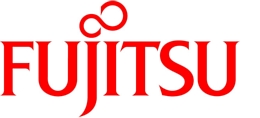|
| Wednesday, 25 July 2012, 15:20 HKT/SGT | |
| |  | |
Source: Fujitsu Ltd | |
|
|
|
|
| One of largest Linux-based systems in Japan; Uses Fujitsu Primesoft Server high-speed in-memory data management software |
TOKYO, July 25, 2012 - (ACN Newswire) - Daiwa Securities Co. Ltd., Daiwa Institute of Research Ltd., and Fujitsu Limited today announced that they have upgraded the infrastructure platform for Daiwa Securities' online trading system. The new system is one of Japan's largest online trading systems built using Linux(1) open source software. Daiwa Securities began a phased migration to the new system in October 2011, and the new system has been fully operational since April 2012.
The infrastructure platform uses Primesoft Server(2), Fujitsu's high-speed in-memory data management software, which has proved itself in the deployment in arrowhead, the trading system of the Tokyo Stock Exchange. In addition to enabling high-speed processing, the new system delivers stability during peak access times and was designed with an emphasis on security.
As a result, Daiwa's online trading can offer customers a high-quality, exceptionally reliable service that they will feel even more secure about using. On April 1, 1996, Daiwa Securities became the first company in Japan to offer a securities trading service over the Internet with its online trading service, which is now used by more than 2.4 million customers.
Features of the New System
1. Uses Primesoft Server high-speed in-memory data management software for session management functions
A session management function(3) is important for online trading systems. The system uses Primesoft Server, which delivers high availability and scalability and enables processing at microsecond (one millionth of a second) speeds.
Following on from its deployment to arrowhead, Daiwa Securities and Daiwa Institute of Research, in pursuit of an ever higher level of availability, added this software to enable the reincorporation of damage-recovered sections without service interruption.
- Accesses data in memory at super-high speeds to deliver high response and throughput performance, maintaining stability even during peak access times.
- Data in memory are stored in triple-modular redundancy, and if a failure occurs, there is a node switchover within seconds, enabling service to continue without interruption while the section that failed is reincorporated.
- To keep up with increases in the volume of session management processing, all that is needed is to upgrade capabilities without having to make any adjustments to the applications, so the system can be scaled up quickly and safely.
2. One of Japan's largest Linux-based online trading systems, with high reliability
Seeking to create a systems environment that does not leave them dependent on hardware, Daiwa Securities and Daiwa Institute of Research have been promoting systems built using the Linux open source software.
Continuing that approach, the new online trading system is an upgrade to a Linux-based system from one that had previously used a commercial UNIX base. For this project, Fujitsu was able to capitalize on its experience in building large-scale Linux-based systems, such as the Net banking system of Daiwa Next Bank, Ltd., and its expertise in open-source system development to smoothly migrate(4) Daiwa from UNIX to Linux.
3. Lower maintenance costs through use of virtualization technology
The use of virtualization technology with the upgrade to the new system contributes to cutting operational and maintenance costs by approximately 30%.
- Consolidation of multiple types of servers to blade servers through the use of virtualization technology.
- Use of Linux and other general-purpose products, as well as application of a standard infrastructure platform, streamlines operational and maintenance work.
- Use of BMC BladeLogic Server Automation(5) automates operational and maintenance work.
For details please visit www.fujitsu.com/global/news/pr/archives/month/2012/20120725-01.html.
(1) Linux: Use of Red Hat K.K.'s Red Hat Enterprise Linux.
(2) Primesoft Server: Without storing data on a hard disk, it directly stores and manages data in memory, enabling high-speed data processing.
(3) Session management function: A way of managing user authorizations and profiles. Since this is required for every access, high speed and high availability are essential.
(4) Smoothly migrate: For the application server, Fujitsu's Interstage Application Server, which incorporates standard technology, was used. Migration to the new system was possible without having to make major revisions to existing applications.
(5) BMC BladeLogic Server Automation: BMC BladeLogic Server Automation from BMC Software Inc. is automated software for operational management of multivendor, multi-platform environments. Fujitsu handles sales and support for this software in Japan. Tasks such as the distribution of applications or patches and the collection of configuration information are automatically executed for multiple servers simultaneously, enabling maintenance tasks to be performed quickly and accurately.
Contact:
Fujitsu Limited
Public and Investor Relations
www.fujitsu.com/global/news/contacts/
+81-3-3215-5259
Topic: New Service
Source: Fujitsu Ltd
Sectors: Exchanges
https://www.acnnewswire.com
From the Asia Corporate News Network
Copyright © 2024 ACN Newswire. All rights reserved. A division of Asia Corporate News Network.
|
|
|